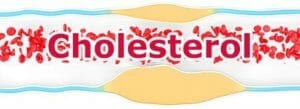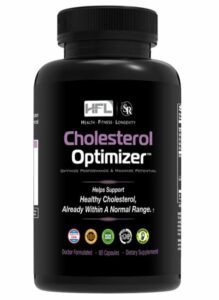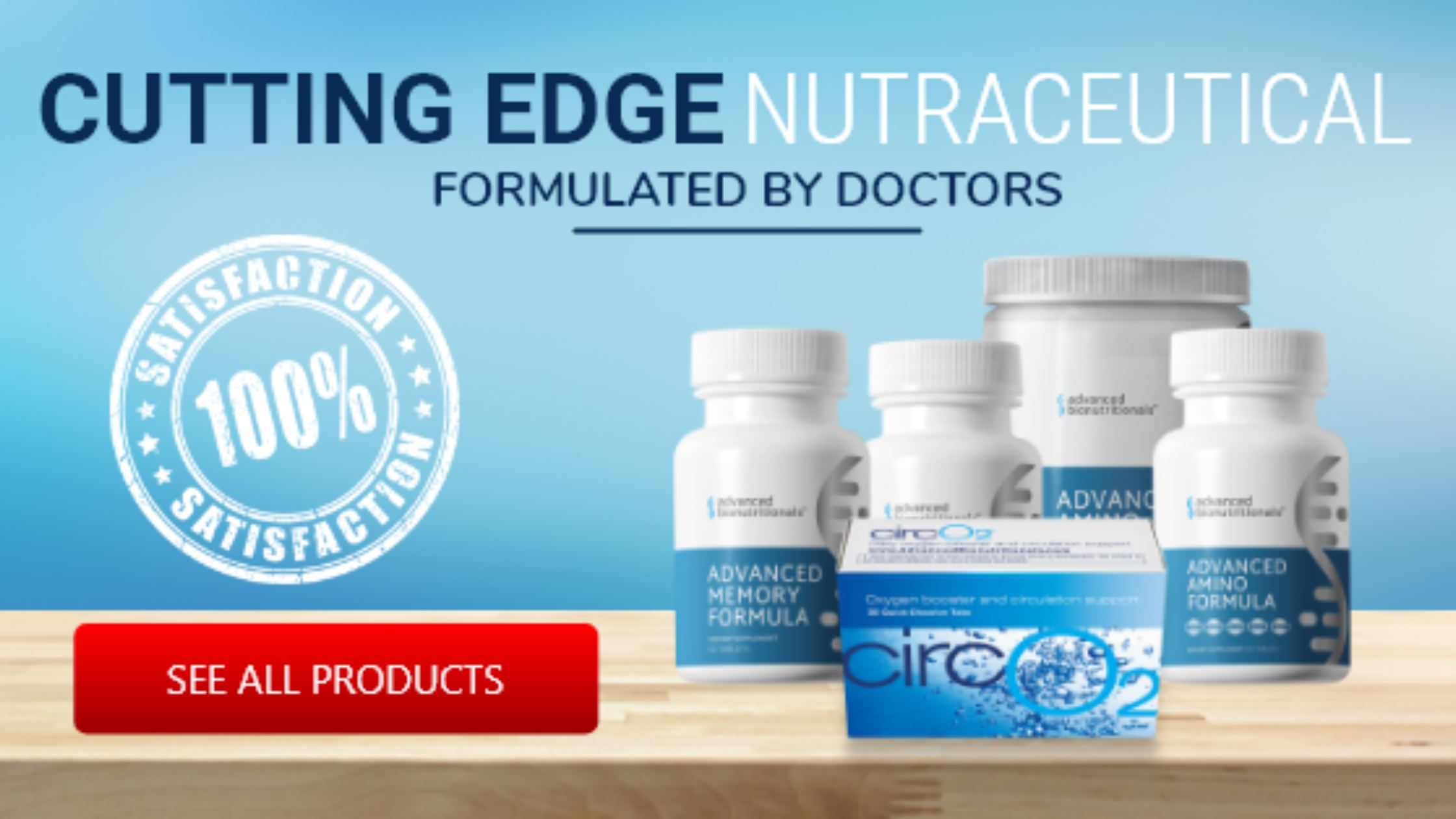Natural Ways to Lower Bad Cholesterol
Looking to lower your bad cholesterol levels? This blog provides you with valuable insights and effective strategies to reduce LDL cholesterol and promote heart health. Explore dietary changes, including foods to avoid and cholesterol-lowering foods to incorporate into your meals. Discover lifestyle modifications, such as regular exercise and weight management, that can positively impact your cholesterol levels. Additionally, learn about natural supplements and remedies that may help lower bad cholesterol. Take control of your cholesterol levels and improve your overall cardiovascular well-being with these practical tips to lower bad cholesterol.

But to do so, it’s important to understand what exactly cholesterol is and the factors that may have brought about an increase in cholesterol so you can find out how to lower bad cholesterol and make the move towards a healthier life!
Here are five natural ways to lower your bad cholesterol:
- Eat a healthy diet: A diet high in fruits, vegetables, whole grains, and lean proteins can help to lower LDL cholesterol levels. Avoid foods that are high in saturated and trans fats, such as fried foods, processed meats, and baked goods.
- Exercise regularly: Regular physical activity can help to improve cholesterol levels and reduce the risk of heart disease. Aim for at least 150 minutes of moderate-intensity exercise or 75 minutes of vigorous-intensity exercise per week.
- Quit smoking: Smoking can damage the lining of your arteries and contribute to high LDL cholesterol levels. Quitting smoking can help to improve your cholesterol levels and reduce your risk of heart disease.
- Lose weight: Carrying excess weight can increase LDL cholesterol levels and the risk of heart disease. Losing weight through diet and exercise can help to lower your cholesterol levels and improve your overall health.
- Consider natural supplements: Some natural supplements, such as plant sterols and stanols, soluble fiber, and niacin, may help to lower LDL cholesterol levels. However, it is important to note that the scientific evidence supporting the effectiveness of these supplements is limited, and more research is needed to fully understand their potential benefits and risks. If you are considering taking a natural supplement to lower your cholesterol, it is important to speak with a healthcare provider to ensure that it is safe and appropriate for you.
What is Cholesterol?
Cholesterol tends to be a waxy and fatty substance present in every cell in your body because it’s essential for your body. It is produced primarily by the liver, yet it is also found in a range of foods, such as meat and dairy products, and if present in moderation you can live healthily.
Sometimes cholesterol is produced or consumed in excess and this can enter your bloodstream and put you at risk of coronary artery disease, so by minimizing the risk factors you can avoid any possible heart problems.
However, cholesterol also comprises two lipoproteins – LDL and HDL. Each of these is a combination of both lipids and proteins which helps them move through the bloodstream and complete their designated task.
LDL of low-density lipoproteins are often referred to as ‘bad cholesterol, due to how if produced in excess, this lipoprotein can lead to buildups in the arteries.
However, HDL or high-density lipoproteins tend to be nicknamed the ‘good cholesterol’ as their main function is to transport cholesterol from across the body back to the liver for regulation – or in other words, excretion from the body.
Understanding what cholesterol is made up of is an ideal way for you to figure out how to lower your bad cholesterol and make a change in your lifestyle and diet.
Can LDL Harm you?
High levels of LDL are often associated with an increased risk of coronary artery disease and other heart conditions due to how they can cause buildups of cholesterol in crucial arteries across the body.
When combined with other fatty substances, your body begins to produce plaque, which causes the thickening of artery walls and can lead to blockages if not properly monitored. This condition, as it worsens, is referred to as atherosclerosis.
Coronary artery disease often occurs because of plaque buildup in the arteries surrounding your heart, this leads to the narrowing and hardening of the arteries due to the plaque acting as an additional layer across the artery walls.
This means that the heart has to work harder to pump blood and oxygen throughout your body and if it isn’t monitored, it can lead to conditions such as angina (chronic chest pain) and heart attacks, given that blood flow becomes completely restricted.
To minimize the risk factor of developing these unhealthy conditions, you must be able to estimate your LDL level, and following this, you may be able to figure out how you can lower bad cholesterol and make changes in your life.
Knowing What Your LDL Level is
Often a blood test with your GP or at the hospital can be a quick and accurate way of measuring your cholesterol levels (which includes LDL). If your age, risk factors, or family history put you at risk of predisposition to heat conditions, you must get regular blood tests under your doctor’s guidance.
However, it is also important to visit other aspects of your life and make a change so you know how you can lower bad cholesterol. Factors such as exercise and a balanced diet can be great ways of reducing your LDL and potentially boosting your levels of HDL.
By doing so you can have the chance to drastically reduce your cholesterol and take action on your health. Increasing your HDL is the ideal way to fight high LDL levels, as the cholesterol will be migrated to the liver ready for disposal.
So if the question of how can you lower bad cholesterol, is burning in your mind, we’re here to guide you through different steps you can take to make a proactive and sustainable change in your life and reduce any risk of coronary artery disease or angina.
Dietary Change
When you have bad cholesterol, diet often plays a huge role. So it’s important to stay on top of what you’re eating and make the necessary adjustments to keep your body healthy and figure out how can you productively lower bad cholesterol.
-
- Identity: It’s crucial that you can identify what you’re eating, particularly the volume of cholesterol you consume and the amount of dietary fiber in your diet.
- Small Changes: After identifying what levels of the above you consume, set yourself targets to increase your dietary fiber intake to between 25-30 grams by incorporating more fruits, oats, and grains into your diet.
- This also applies to cholesterol, try and limit your intake to under 300mg, but if your LDL is high then try to keep the intake below 200mg by making simple swaps from your favorite meat and dairy products to lean, fish, and skimmed alternatives.
- Focus on the Fats: As with many conditions, trans and saturated fats can be very harmful to those with high cholesterol. So by limiting the number of products you consume that have hydrogenated fats and high levels of similar fats, you could prevent the decrease in your HDL levels and the increase in your LDL levels.
- Focus on monounsaturated fats, as these are healthy fats found in nuts, olive, and canola oils which can be healthy if consumed in moderation (10% of your daily calories from good fats).
- Leaving Processed in the Past: When wondering ‘how can you lower bad cholesterol?’, eliminating processed foods is a prime factor. Sugary drinks, refined sugar, processed meats, and dairy food can be extremely harmful due to the chemicals and sugars integrated into the foods.
- By making subtle switches to whole-wheat bread, whole grains, and other natural food sources, you will be able to limit your harmful cholesterol intake.
- Exercise: getting the recommended 30 to 60 minutes of daily exercise can be a great way of limiting your LDL cholesterol and boosting the necessary HDL production. Whether you cycle, run, weight lift, or walk – any exercise is great for your cholesterol-lowering journey.
- Leave Smoking in the Dust: Quitting smoking is hard for a majority of people, so making the step to cutting down your daily intake and beginning to quit is a great way of reversing the LDL elevation caused by smoking.
Are Supplements Good for Bad Cholesterol?
Changing your diet and lifestyle factors are great and proven methods of lowering your cholesterol, but adding some cholesterol-lowering supplements might boost the effects even further.
Fish Oil
A hearty supplement brimming with omega-3 acids, fish oil can provide huge health benefits when taken at a dosage of 1000-2000mg each day (based on your doctor’s or pharmacy’s recommendations).
This is great for those who aren’t fanatical about fish or aren’t able to incorporate it into regular meals, as this is a fantastic way of unlocking the benefits of omega 3 and raising your levels of HDL, whilst lowering the LDL levels.
CoQ10
This coenzyme is ideal for those looking for a supplement that solely focuses on lowering cholesterol levels. This supplement targets any excess cholesterol and can prevent further impacts of atherosclerosis so that your arteries can become clear and healthy. If taken at a 200-300mg dose, CoQ10 can be excellent for anyone with poor cholesterol.
Niacin
Vitamin B3, or Niacin, is a very common supplement used to tackle the repercussions of high cholesterol and target both HDL and LDL. When taken at an average dose of 1500mg, Niacin offers a huge range of benefits, including; a reduction in triglycerides, decreased levels of LDL cholesterol, and a beneficial increase in HDL cholesterol – all of which help answer the question ‘how can you lower bad cholesterol?’.
Red Yeast Rice
Found in fermented white rice, red yeast rice can provide a huge variety of beneficial health-improving factors. Following an analysis of over thirteen respective studies into red yeast rice, it was found that red yeast rice can reduce triglycerides and LDL cholesterol to help improve overall cholesterol.
When taken in an average dosage of 1200mg twice a day, patients can unlock the huge range of benefits that red yeast rice has to offer.
Krill Oil
Krill oil is an excellent herbal medicine that is just as essential in your medicine cabinet as garlic. When taken in a daily dose of 500mg, krill oil can display a range of cholesterol-lowering properties that will help improve the production of HDL cholesterol.
Krill oil will also allow users to combine this with other supplements to improve their cholesterol. Shown in both human and animal studies, krill oil is essential if you’re wondering ‘how can you lower bad cholesterol?
Conclusion
In conclusion, there are several natural ways that you can lower your bad cholesterol levels and improve your overall heart health. These include eating a healthy diet, exercising regularly, quitting smoking, losing weight, and considering natural supplements. It is important to speak with a healthcare provider to determine the best approach for you and to ensure that any supplements you may be considering are safe and appropriate for you.
Related Articles:
Symptoms of high cholesterol in women
What is the best way to lower cholesterol?
What does high cholesterol do?


